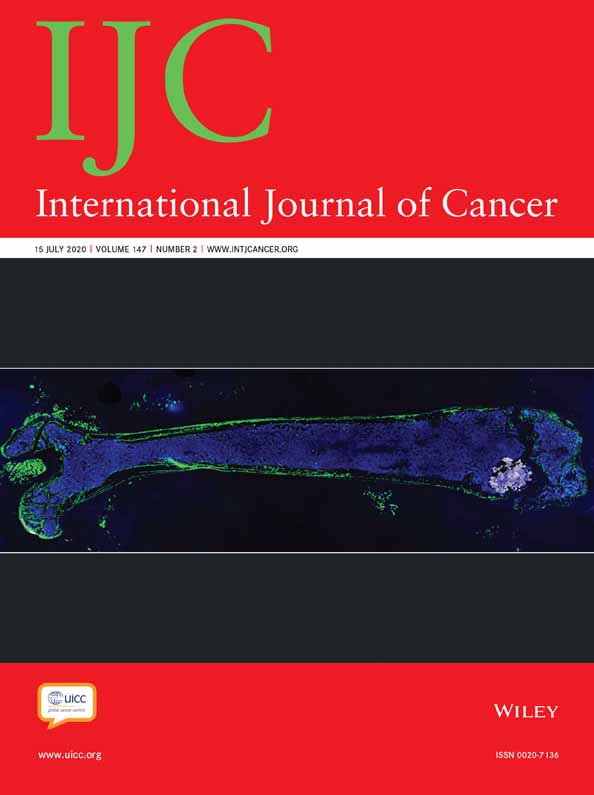12-Chemokine signature, a predictor of tumor recurrence in colorectal cancer
Abstract
Tertiary lymphoid structures (TLSs) provide an immunological antineoplastic effect. Recent evidences link a unique 12-chemokine (CCL2, -3, -4, -5, -8, -18, -19, -21, CXCL9, -10, -11, -13) signature status from tumor tissue and the TLS expression. However, the potential significance of 12-chemokine signature status for clinical use is unknown. We aimed to evaluate the association of 12-chemokine signature status with patient outcomes in colorectal cancer (CRC). We used integrated data of resected 975 CRC cases within three independent cohorts from France, Japan and the United States (GSE39582, KUMAMOTO from Kumamoto university hospital and TCGA). The association of 12-chemokine signature status with clinicopathological features, patient outcome, TLS expression status and key tumor molecular features was analyzed. Patients with low 12-chemokine signature status had a significant shorter relapse-free survival in discovery cohort (HR: 1.61, 95% CI: 1.11–2.39, p = 0.0123), which was confirmed in validation cohort (HR: 3.31, 95% CI: 1.33–10.08, p = 0.0087). High 12-chemokine signature status had significant associations with right-sided tumor, high tumor-localized TLS expression, BRAF mutant, CIMP-high status and MSI-high status. Furthermore, RNA-seq based analysis showed that high 12-chemokine signature status was strongly associated with inflammation-related, immune cells-related and apoptosis pathways (using gene set enrichment analysis), and more tumor-infiltrating immune cells, such as cytotoxic T lymphocytes and myeloid dendritic cells (using MCP-counter analysis). We investigated a promising effect of 12-chemokine signature status in CRC patients who underwent resection. Our data may be helpful in developing novel immunological treatment strategies for CRC.
Abstract
What's new?
Chronic inflammation at tumor sites is linked to the emergence of ectopic formations known as tertiary lymphoid structures (TLSs), which combat tumor progression. Here, analyses of human colorectal cancer (CRC) tissue show that high expression of a previously identified 12-chemokine signature predicts high TLS expression at tumor sites and is associated with increased presence of tumor infiltrating immune cells and reduced CRC recurrence rate. High 12-chemokine signature status was further linked to key clinicopathological and molecular features of CRC. The findings indicate that the 12-chemokine signature is informative for host immune status and may have a prognostic role in CRC.
Conflicts of interest
H.-J.L. reports receiving speakers bureau honoraria from and is a consultant/advisory board member for Merck Serono, Bayer and Genentech. No potential conflicts of interest were disclosed by the other authors.




